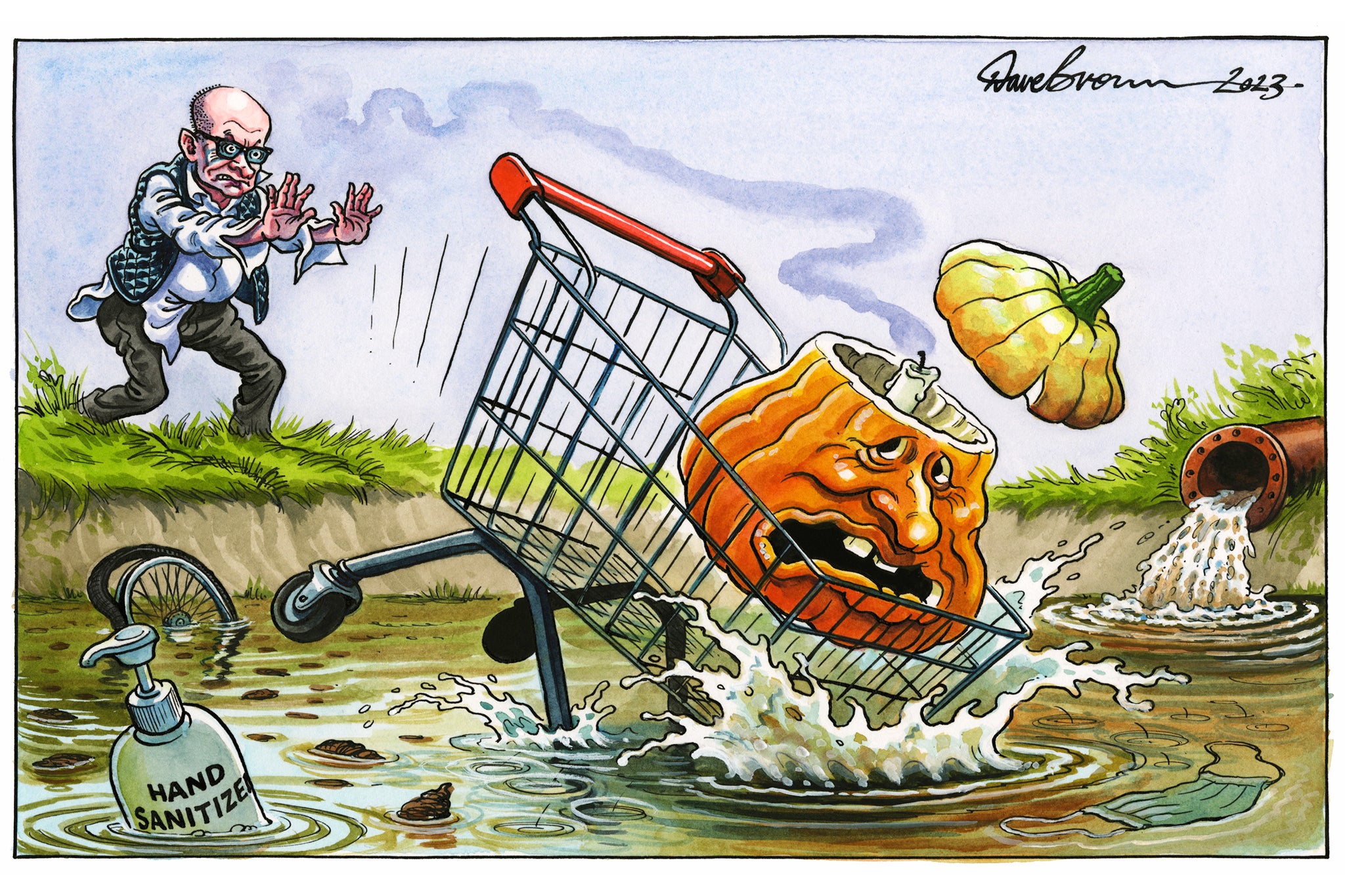In modern Britain’s darkest hour, we needed a Churchill but got a charlatan in charge
Editorial: Baroness Hallett and her Covid inquiry team will make their findings public in due course, but for the time being it is plain that one of the most grievous weaknesses in the system was the man at the top: Boris Johnson

The Hallett inquiry won’t produce even interim findings on the official response to Covid until some time in 2024, and its final report will not arrive for several years after that. However, two things are already apparent from the evidence presented thus far in the first of the modules, titled “resilience and preparedness”: that the UK was not resilient when the Covid crisis broke in early 2020; and neither, indeed, was it prepared.
Baroness Hallett and her team will make their judicious findings public in due course, but for the time being, it is plain to see that one of the most grievous weaknesses in the system was the man at the top of the machine: Boris Johnson.
As Lee Cain, his head of communications, put it so gently, this was the wrong kind of crisis for Mr Johnson’s skill set. Mr Cain is demonstrably right about that – and there is an overwhelming consensus emerging from this inquiry, as well as the various inquiries into Partygate, that Mr Johnson’s personal and professional behaviour fell far short of the demands of the hour.
Where Mr Cain is unnecessarily generous to Mr Johnson is in thinking that such flaws were confined to the pandemic response. In reality, the lack of discipline, application, or even a sense of humanity displayed by Mr Johnson infused his entire approach to government, and indeed to life in general. By dint of that, combined with his disastrous Brexit mission (primarily a vehicle for his vaulting ambition) and his holding high office at such a critical time, he is responsible for the state of the country today.
Put at its simplest, Mr Johnson was unforgivably slow to face up to the enormity of the Covid crisis as it emerged in the first weeks of 2020; he dithered and delayed over the various lockdowns that followed; he was too quick to relax social distancing restrictions, and generally too chaotic and indecisive to make the right decisions at the right times.
Extraordinary as the situation was – a once-in-a-century global pandemic – a good prime minister is one who can function in such an atmosphere, and take charge of the nation’s destiny. Mr Johnson, as a biographer of Winston Churchill, should have realised this. For all his flaws, Churchill was the figure the nation turned to in its darkest hour. He was able to make decisions with some ruthlessness when needed – the bombings of cities and “action this day” – and inspired resistance.
Had Margaret Thatcher or Tony Blair been in No 10 in 2020, they would certainly have run the government in a properly determined, decisive, rational and orderly manner, as they did during the wars in which British forces were involved during their respective terms of office. Instead, in this modern-day darkest hour, Britain had a charlatan in charge.
Mr Johnson – universally referred to as “the trolley” for his lack of grip – was, if not negligent, certainly not up to the task. The public saw it for themselves in his often rambling, babbling performances in the Commons and the daily Covid press conferences. But until the Hallett inquiry, they did not comprehend the full horrors of the Downing Street “dumpster fire”, as Dominic Cummings has called it.
In that context, Mr Cummings – no hero in some obvious respects – was quite right to be frustrated by the failings of the prime minister, with his “trolleying” back and forth; but his bad language (especially the misogynistic insults) cannot be excused. Nobody comes out of this inquiry decorated in anything close to glory.
The wider point is that the same flaws that made Mr Johnson such an unsuitable leader during the pandemic made him an equally unsuitable leader during Brexit and its aftermath. A brilliant, if cavalier, campaigner, Mr Johnson was evidently one of those politicians for whom the pursuit of power is far more intoxicating than the exercise of it. Autocratic and untrustworthy by nature, eventually his flaws brought him down. Now, those same flaws are dragging his reputation still lower.
Yet it was not all Mr Johnson’s fault. The failure to prepare, and then to react to changing circumstances as the pandemic ran its course, was not the fault of one man. Whether Mr Cummings is right about the dysfunctional workings of No 10 and the Cabinet Office, or the likes of former cabinet secretary Mark Sedwill are more accurate in blaming Mr Cummings for the chaos, it is clear that a combination of personal and institutional weaknesses left Britain exposed to losing a greater number of lives – as well as a greater number of patients to the uncertain future of life with long Covid – than might otherwise have been lost.
There is some evidence that there was a toxic, macho culture or atmosphere in No 10, and Mr Cummings has been accused of contributing to it, though he appears to see himself as someone who simply tried to overcome the shortcomings of an inert machine.
The Hallett inquiry will have the last, authoritative word on “lessons learnt”, but we can already be quite clear on the one lesson that can be learnt immediately: that we must never let Boris Johnson near government again.






Join our commenting forum
Join thought-provoking conversations, follow other Independent readers and see their replies
Comments